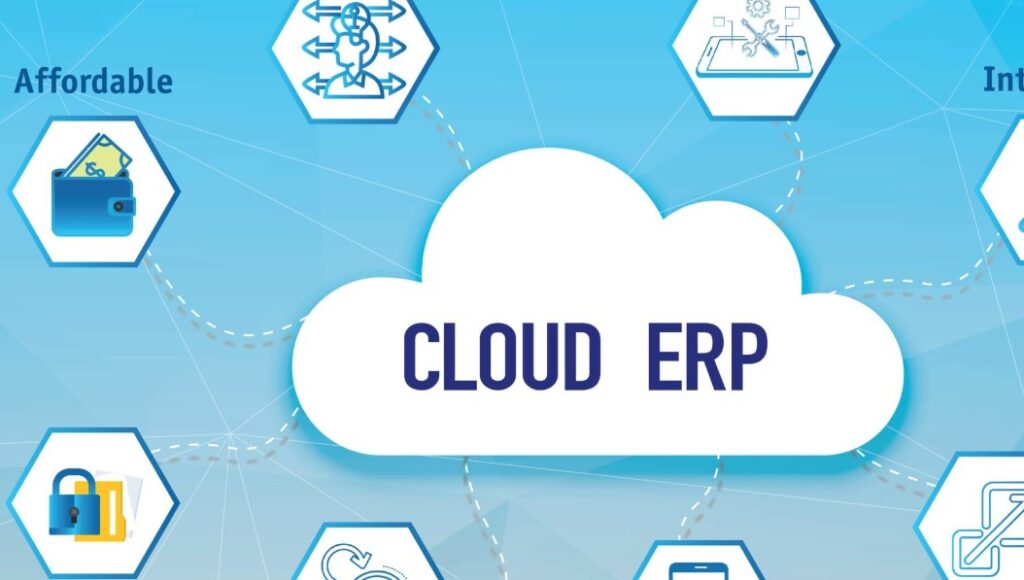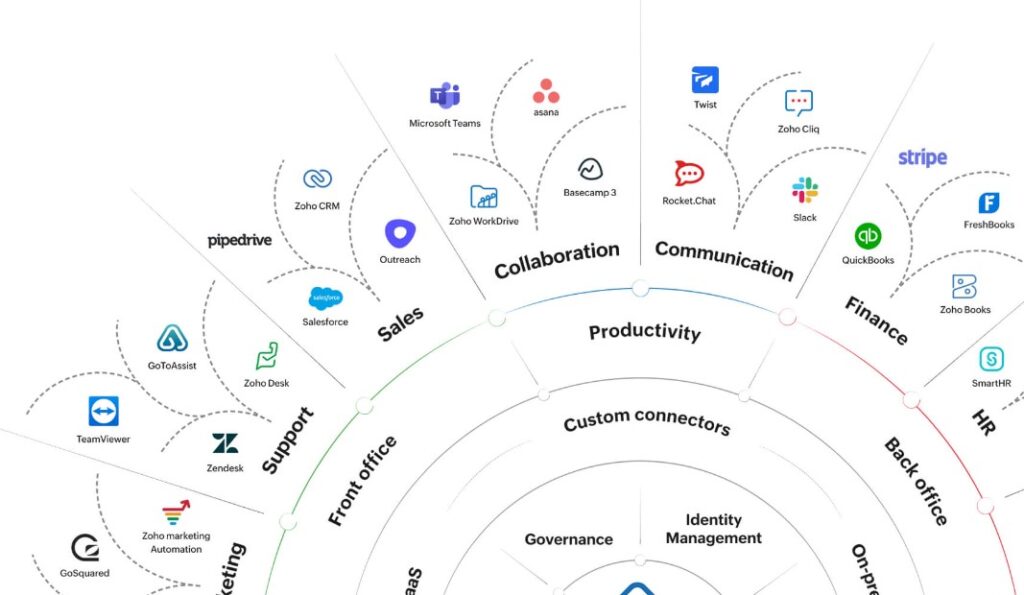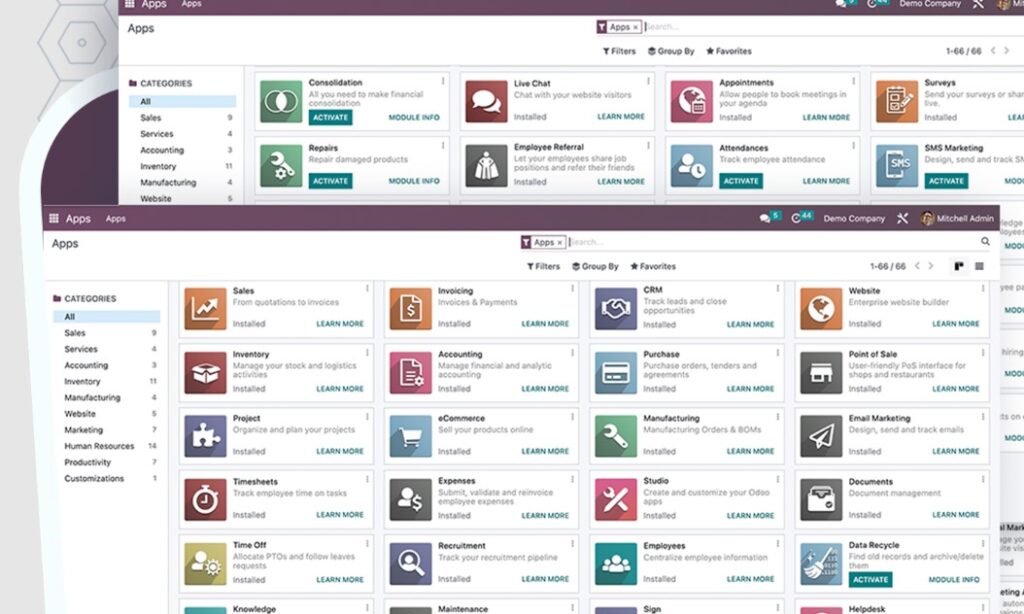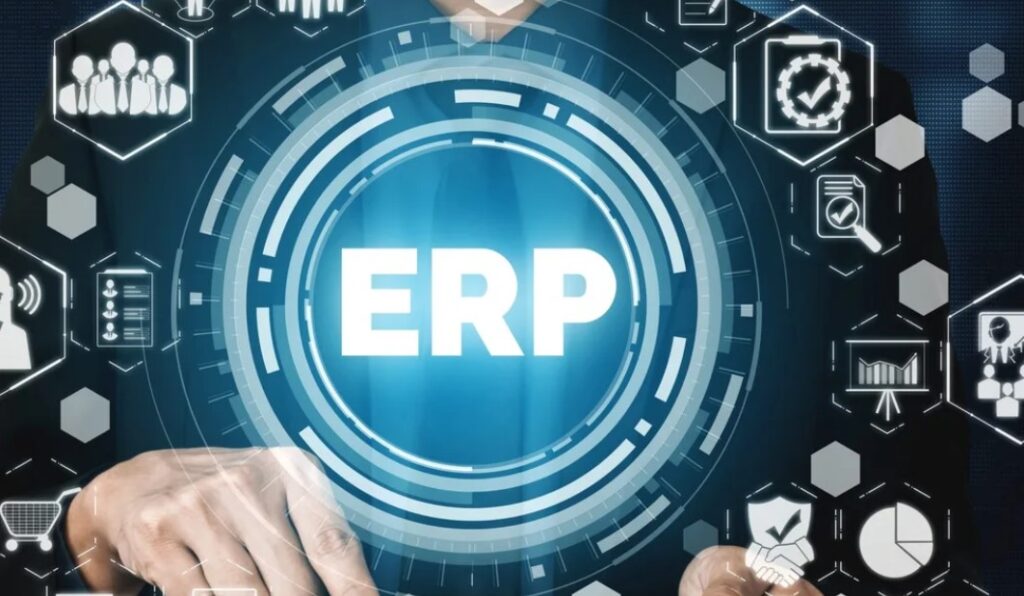In today’s competitive market, businesses need flexible solutions that can adapt to their unique operational needs. Customizable ERP software solutions offer exactly that—enterprise resource planning systems tailored to fit your business processes, industry demands, and specific requirements. These systems streamline operations, from procurement to financial management, and allow businesses to scale as they grow.
In this article, we’ll explore the best customizable ERP software solutions available in 2024. We’ll cover their features, benefits, real-world examples, and how they can solve common business challenges. Let’s dive in!
What is Customizable ERP Software?

Customizable ERP software refers to enterprise resource planning (ERP) systems that allow businesses to tailor the software to meet their unique operational needs. Unlike traditional off-the-shelf ERP solutions that provide predefined modules and workflows, customizable ERP software enables businesses to modify various aspects of the system, such as features, user interfaces, integrations, and workflows, to align perfectly with their specific processes and industry requirements. This flexibility ensures that the ERP software works in harmony with the business rather than forcing the business to adapt to rigid software limitations.
Key Features of Customizable ERP Software
- Modular Design: Customizable ERP systems often come in a modular format, where companies can choose and implement only the functionalities they need, such as finance, human resources, inventory management, procurement, or customer relationship management (CRM). Businesses can add or remove modules as their needs evolve, ensuring a flexible and scalable solution.
- Workflow Customization: Businesses can modify or create workflows specific to their processes, allowing them to define how data moves across departments, automate task approvals, or streamline order fulfillment. For instance, a manufacturing company may create a custom workflow for tracking raw materials through the production process, while a retail company might focus on a workflow that optimizes the order-to-shipment process. 🛠️
- Industry-Specific Solutions: Many ERP vendors offer industry-specific templates or solutions that can be further customized. For example, an ERP system used in healthcare may need to comply with strict data privacy regulations like HIPAA, while an ERP for manufacturing might prioritize production planning, quality control, and supplier management.
- User Interface Customization: Customizable ERP software allows businesses to configure the user interface to meet their employees’ needs. This may include personalizing dashboards, adding or removing data fields, or changing the way reports are displayed. By providing an intuitive and tailored user experience, employees can work more efficiently and access the information they need with ease.
- Third-Party Integrations: Most customizable ERP solutions support third-party integrations, which allow the ERP system to work alongside other software tools the company is already using, such as CRM systems, eCommerce platforms, payment gateways, or business intelligence tools. This creates a seamless flow of data and helps businesses avoid data silos.
Why Customizable ERP is Important for Businesses
- Flexibility: No two businesses are alike, and customizable ERP software gives companies the flexibility to build a system that reflects their specific processes, operations, and goals. Rather than adjusting your processes to fit rigid software, customizable ERP allows the software to mold around your business.
- Scalability: Customizable ERP systems are designed to grow with your business. As your operations expand—whether you’re adding new products, locations, or suppliers—your ERP system can be easily modified to accommodate these changes without the need for a complete overhaul. 🚀
- Cost-Efficiency: With a customizable ERP system, businesses can avoid paying for features they don’t need. By selecting only the necessary modules, businesses save on costs while still having the flexibility to add more functionalities in the future.
In essence, customizable ERP software provides businesses with a flexible, scalable, and tailored solution that can adapt to changing business needs, making it a vital tool for companies looking to improve efficiency and streamline operations.
Benefits of Customizable ERP Software Solutions

Choosing a customizable ERP system brings numerous advantages for businesses of all sizes:
1. Tailored to Your Business Needs
Customizable ERP software solutions allow businesses to adapt the system to their specific operational requirements. For example, a manufacturing company may prioritize production and inventory management, while a retail business might focus on sales and customer relationship management (CRM).
2. Scalability
As your business grows, your ERP software should grow with you. Customizable ERP solutions are scalable, meaning you can add new modules or features as needed, ensuring the system evolves with your business. This helps businesses avoid costly overhauls when their operations expand.
3. Increased Efficiency
Customizable ERP systems help automate and optimize daily operations, from inventory tracking to financial reporting. By configuring workflows to suit specific needs, businesses can eliminate manual tasks and reduce the risk of human error, leading to increased productivity.
4. Better Decision Making
With access to real-time data across all business functions, customizable ERP software provides valuable insights that support better decision-making. Businesses can easily generate reports on performance, supply chain efficiency, and financial health, enabling proactive management.
5. Improved Collaboration
ERP systems centralize data, improving communication across departments and allowing teams to work seamlessly together. With customizable ERP solutions, workflows can be tailored to foster collaboration between departments like procurement, sales, and finance.
Top Customizable ERP Software Solutions for 2024

Here are five of the top customizable ERP software solutions you can consider for your business in 2024:
1. SAP Business One
SAP Business One is a robust ERP platform designed for small and medium-sized enterprises (SMEs). It offers extensive customization options, enabling businesses to modify modules and workflows according to their needs.
- Features: Financial management, inventory control, CRM, procurement, project management
- Price: Starting at $94 per user/month
- Use Case: Ideal for SMEs looking for a comprehensive ERP system with the ability to scale and integrate additional modules as needed.
- Pros: High customizability, scalable, strong support for multiple industries
- Cons: Steep learning curve, higher implementation costs
- Where to Buy: SAP Business One
2. Odoo ERP
Odoo is an open-source ERP system that offers flexibility and customization across a wide range of industries. With thousands of apps and modules, Odoo allows businesses to pick and choose exactly what they need.
- Features: Inventory, CRM, HR, eCommerce, project management, accounting
- Price: Free for one app, starting at $12 per user/month for additional apps
- Use Case: Perfect for startups and growing businesses that want a cost-effective, modular ERP solution.
- Pros: Highly modular, open-source, cost-effective
- Cons: Requires technical expertise for advanced customizations
- Where to Buy: Odoo ERP
3. NetSuite ERP
NetSuite ERP, a cloud-based solution by Oracle, is known for its ability to customize modules according to industry and departmental needs. It’s an excellent option for mid to large-sized businesses looking for a scalable ERP solution with strong support for customization.
- Features: Financial management, supply chain management, CRM, HR, inventory management
- Price: Custom pricing, starting at around $999 per month
- Use Case: Best suited for businesses that need a scalable, cloud-based ERP solution with robust customization options.
- Pros: Cloud-based, scalable, strong reporting tools
- Cons: Higher cost for smaller businesses, customization requires expert setup
- Where to Buy: NetSuite ERP
4. Acumatica Cloud ERP
Acumatica offers a fully customizable ERP platform, designed for mid-sized businesses and growing enterprises. Its cloud-based system allows businesses to add and remove modules, integrate with third-party software, and scale operations as needed.
- Features: Financials, distribution, manufacturing, CRM, project accounting
- Price: Custom pricing
- Use Case: Ideal for businesses that need to customize workflows and modules to fit specific business processes.
- Pros: Highly customizable, cloud-based, user-friendly interface
- Cons: Custom pricing can be higher for smaller businesses
- Where to Buy: Acumatica Cloud ERP
5. Microsoft Dynamics 365
Microsoft Dynamics 365 is a popular ERP platform offering deep integration with other Microsoft products. It provides robust customization capabilities, making it a go-to choice for businesses that need highly tailored workflows and advanced data integration.
- Features: Financial management, supply chain operations, HR, CRM, manufacturing
- Price: Starting at $180 per user/month
- Use Case: Suitable for mid to large enterprises that already use Microsoft products and require tight integration with other Microsoft tools.
- Pros: Excellent integration with Microsoft ecosystem, scalable, customizable
- Cons: Higher cost for smaller businesses, customization can be complex
- Where to Buy: Microsoft Dynamics 365
Comparison Table: Top Customizable ERP Software Solutions
| ERP Software | Use Case | Pros | Cons | Price | Key Features |
|---|---|---|---|---|---|
| SAP Business One | SMEs with complex needs | Highly customizable, scalable | Steep learning curve | Starting at $94/user/month | Financial management, CRM, procurement |
| Odoo ERP | Startups and growing businesses | Modular, open-source, cost-effective | Requires technical expertise | Free for one app, $12/user/month | Inventory, CRM, accounting |
| NetSuite ERP | Mid to large businesses | Cloud-based, strong reporting | Expensive for small businesses | Starting at $999/month | Supply chain management, CRM, finance |
| Acumatica Cloud ERP | Mid-sized businesses needing customization | Highly customizable, user-friendly | Custom pricing | Custom pricing | Financials, CRM, project accounting |
| Microsoft Dynamics 365 | Mid to large enterprises using Microsoft tools | Excellent integration, scalable | Complex customization | Starting at $180/user/month | Financials, HR, CRM, manufacturing |
How to Buy and Where to Buy Customizable ERP Software

Direct from Vendor
Most ERP vendors offer their products directly through their websites. You can explore product details, request a demo, or contact sales for a quote. For example, you can buy NetSuite ERP directly from the Oracle website.
Request a Demo
Before purchasing, request a demo or trial of the ERP software to ensure it fits your business’s specific needs. Vendors like SAP and Acumatica offer guided demos to showcase the software’s capabilities.
Compare Pricing and Features
Carefully compare features, pricing, and integration options before making a decision. Customizable ERP systems often come with a subscription model or custom pricing, depending on the size and complexity of your business.
Use Cases for Customizable ERP Software Solutions

Customizable ERP software solutions are invaluable for businesses across a range of industries because of their ability to adapt to specific operational needs. Here are some common use cases where customizable ERP systems provide significant benefits:
1. Manufacturing Industry
In manufacturing, businesses need to manage complex production processes, inventory levels, and supply chains. Customizable ERP solutions allow manufacturers to tailor the system to track production schedules, monitor raw materials, and optimize inventory management. They can also customize workflows for quality control and regulatory compliance. For example, a manufacturer might set up automated workflows to reorder materials when stock levels reach a specific threshold, ensuring uninterrupted production.
2. Retail and eCommerce
Retail businesses often require a seamless integration between inventory management, sales, and customer relationship management (CRM). Customizable ERP software helps retailers configure these modules to meet their specific needs, such as tracking online and in-store sales, managing customer returns, and integrating with third-party eCommerce platforms. Retailers can customize ERP to track real-time inventory, manage promotions, and enhance customer experiences, driving more sales.
3. Healthcare
Healthcare organizations must comply with strict regulations, handle sensitive patient data, and manage a range of services. A customizable ERP solution allows healthcare providers to integrate compliance management, patient billing, and scheduling into one system. Hospitals, for instance, can create custom workflows to manage patient records and streamline processes like appointment booking or inventory management of medical supplies, ensuring better service delivery.
4. Construction and Real Estate
In the construction industry, ERP systems need to track project timelines, budgets, materials, and labor. Customizable ERP software enables project managers to create tailored workflows for each project phase, from planning and procurement to execution and billing, improving project management and ensuring profitability.
These use cases demonstrate how customizable ERP solutions can be adapted to solve industry-specific challenges, improving efficiency, reducing costs, and ensuring regulatory compliance.
FAQ
- What makes ERP software customizable? Customizable ERP software allows businesses to tailor modules, workflows, and features to their specific operational needs.
- Which industries benefit the most from customizable ERP solutions? Industries like manufacturing, retail, logistics, and healthcare benefit greatly from customizable ERP solutions due to the complexity of their operations.
- How much does customizable ERP software cost? Pricing varies widely, but it typically starts at $12/user/month for smaller systems like Odoo and can exceed $999/month for enterprise solutions like NetSuite.
- Can ERP systems integrate with existing software? Yes, most customizable ERP solutions can integrate with other business systems like CRM, accounting software, and inventory management tools.
- Where can I buy customizable ERP software? You can purchase ERP software directly from vendors’ websites, such as SAP or Microsoft, or through authorized resellers.
Customizable ERP software solutions are vital for businesses looking to streamline their operations and scale effectively. Whether you’re a small business or a large enterprise, the flexibility offered by platforms like SAP Business One, Odoo, or NetSuite ensures you get the perfect fit for your business needs.
